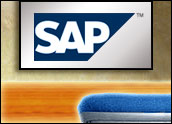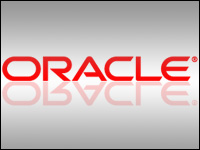
I was at the Enterprise 2.0 conference in Boston last week. Good show, nice people, well run, and it was held at a swanky new Westin on the waterfront. It got me thinking, though, about the “two-dot-oh” phenomenon and how badly it needs a rethink.
See, the problem — whether we’re dealing with Enterprise 2.0 or (maybe) CRM 2.0 or Anything 2.0 — is that the 2.0 is a misnomer, like when Microsoft periodically changes the numbering scheme for Windows. No matter what the numbering scheme says, we’re all like the Greek mythological character Sisyphus, starting out in the morning with a boulder and a hill to climb. Try as we might, something in us instinctively knows how to do 1.0 much better than 2.0.
What Was Old Is New Again
To me, the misnomer disconnect goes like this: The numeral informs us that we are no longer in Kansas, metaphorically speaking, and that we have crossed a divide into something that, while new, is an extension or enhancement of whatever was 1.0 before. There is even the inference that we’re better off now because 2.0 is greater than 1.0. In reality, it’s Groundhog Day and the alarm is just going off, informing us that we have another opportunity to make the same mistakes we made yesterday.
In many of the 2.0 things that I am watching, everything is new again, and we seem to be starting from scratch. By the way, in an evolutionary system, that’s really the best way to be; you might inherit your genes from both parents, but you aren’t saddled with their mistakes, obligations or debts (unless you are royalty, but that’s a very special case). However, the thing about Anything 2.0 is that too often it makes such a clean break with the past that there is little to no inheritance of the good stuff, even if the good stuff can be narrowed down to hard won experience of what not to do.
A telltale sign of 1.0 is that these editions of markets are focused on nouns. Innovative vendors sell things — disk drives, computers, databases and cars that come in one color — which buyers buy for their apparent intrinsic worth. In contrast, the 2.0 edition, if you are lucky enough to find one, focuses on active verbs. You buy a 1.0 product to have it — assuming you’ll know what to do with it, which you will not unless you hire a consultant to show you, at which point you will realize that that’s not what you wanted — and you buy the 2.0 version to fill in the blank at the end of this sentence: “So that I can (blank).”
The New 1.0
In a lot of places where the 2.0 moniker has been rushed into place though, we’re not really there yet. In my humble opinion — and please forgive this metaphor — 2.0 has become the new 1.0. Why the aversion to calling a one, a one? Fear of customer burnout, perhaps? Maybe, but the fact is that for a while we have needed a second act for a lot of what we started in the last couple of decades, and the 2.0 metaphor fits that need perfectly, if we can truly muster up the products.
As you can see, I am conflicted by all this, but I suspect the conflict is attributable to which 2.0 phenomenon I am looking at.
For example, Enterprise 2.0 looks at the social networking phenomenon and says “Yikes! We don’t relate to our 30-something and, gulp, sub-30-something employees and customers! Buy some nouns!” And off we trot to the Internet to get some cloud computing, social networking stuff or what have you.
The Case of CRM 2.0
Curiously, though, I think CRM 2.0 presents a very different reaction. Rather than looking at the people, both employees and customers, that we might be challenged to relate to, we look at the same new social technologies and say, “Oh boy!” There we see a rich assortment of cool things that we almost intuitively know how to use, and we say, “Now I can (blank),” basically fulfilling the 2.0 aspiration of buying technology to get things done.
What a stark contrast. I suspect that the guys in the enterprise will have some success regardless of the numeral they attach to the latest wave, but a lot of that success will be attributable to the CRM 2.0 effort. CRM really is into a 2.0 phase; we’ve all used CRM 1.0 and watched as its results became more and more limited while the market place changed.
None of this will significantly alter the way countless two-dot-oh initiatives are going to market, but it might cause a few buyers to do a double take, and that can cause change. Remember, the next generation of products is supposed to be about the customer, so stand firm when you go into the marketplace. Tell vendors you’ve had enough nouns and you want to understand their verbs now.
Denis Pombriant is the managing principal of the Beagle Research Group, a CRM market research firm and consultancy. Pombriant’s research concentrates on evolving product ideas and emerging companies in the sales, marketing and call center disciplines. His research is freely distributed through a blog and Web site. He is working on a book and can be reached at [email protected].
























































